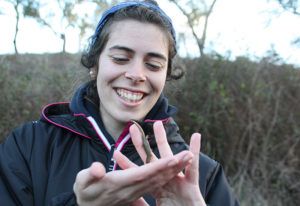Investigating the spread of Ranavirus to endangered freshwater fish

Invasive animals can carry new parasites and pathogens which, once in the new ecosystem, can cause outbreaks among the indigenous populations.
The problem
The introduction of exotic species into new habitats is a major threat to wildlife. Exotic, non-native species can often be highly resilient and extremely competitive in a new environment. This can result in disastrous consequences for native species living in that area. In addition to competition and predation, invasive animals can carry new parasites and pathogens which, once in the new ecosystem, can cause outbreaks among the indigenous populations.
This is what’s happening with the introduction of the invasive African clawed frog (Xenopus laevis). Originally from Sub-Saharan Africa it has now been introduced to many European countries, including Portugal and the UK. In 2012, whilst trying to eradicate this exotic frog from Oeiras in Portugal, we detected some individuals infected with Ranavirus.
This emerging viral pathogen can live in many host animals and has the ability to infect both fish and amphibians. This is really worrying. The Portuguese population of African clawed frogs share their freshwater homes with two endangered species of fish, both of which are now found in their diet. In addition to pollution and habitat fragmentation, the critically endangered Portuguese nase and the vulnerable Iberian loach must now deal with the voracious Xenopus too.

The solution
So, what are the real impacts to these two species of fish? Our intern, Catarina, will be based at the Zoological Society of London for the next few months, trying to address this question in finer detail. She will investigate whether the pathogen is present in any other hosts and at what prevalence.
It is also important to understand if the host-pathogen dynamics change over time (considering the ongoing eradication program of Xenopus). Ultimately, data generated from this study will help towards understanding the impacts Xenopus have on native species, as freshwater fish and amphibians are among the most threatened vertebrate groups in the world.
This project is possible thanks to our generous donors. Can you help us continue?
